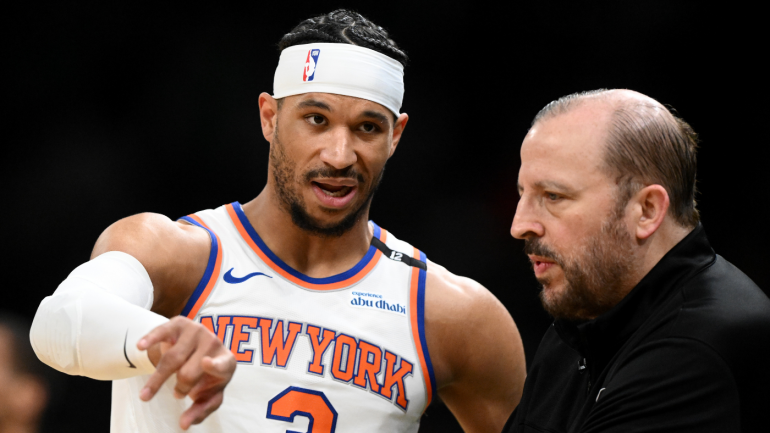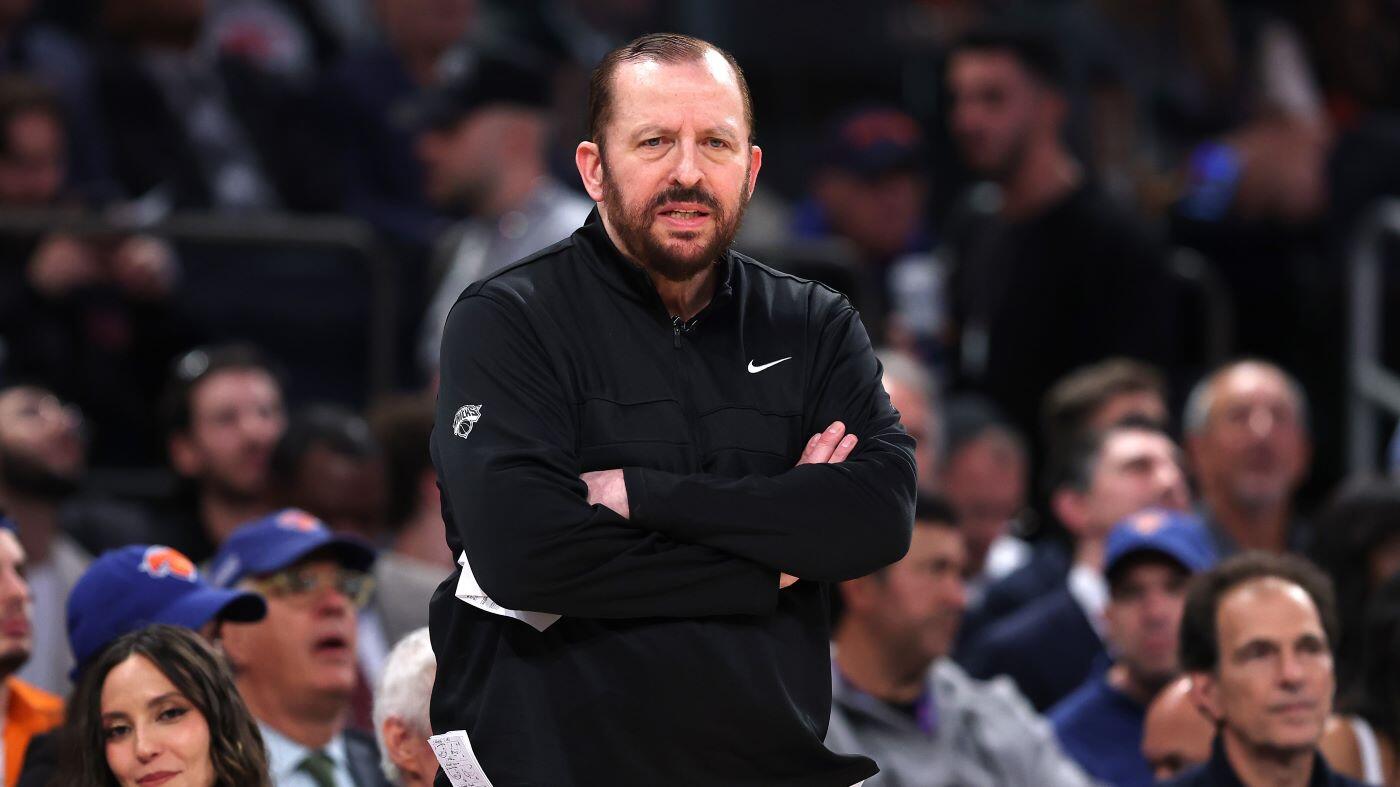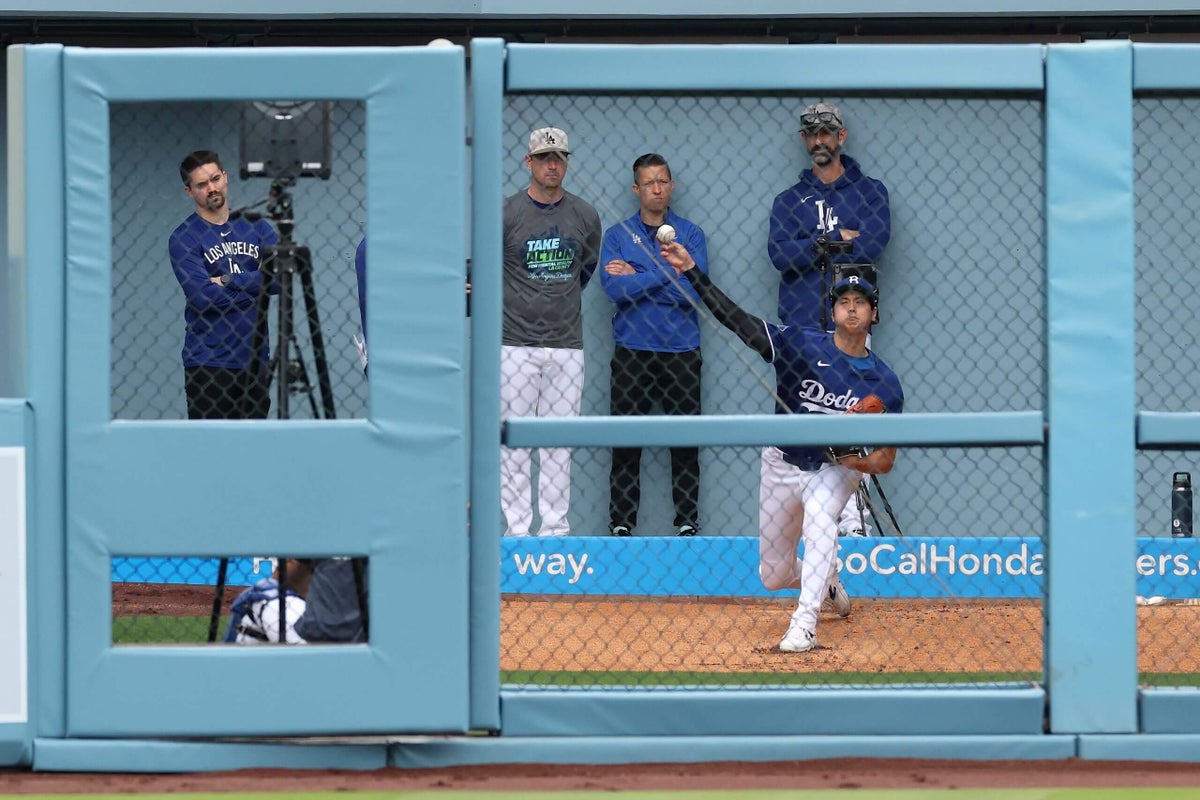
The dominant story of the 2025 Eastern Conference finals has been how badly the New York Knicks have played with their starting lineup on the floor. The five-man unit of Jalen Brunson, Josh Hart, Mikal Bridges, OG Anunoby and Karl-Anthony Towns led the regular season with 940 minutes played and leads the postseason as well at 308, but its effectiveness waned as the regular season progressed. And in the playoffs, it’s been downright disastrous.
In those 308 postseason minutes, New York’s starters have been outscored by 50 points. The group has been outscored by double digits in six of the 14 Knicks playoff games, and in the Eastern Conference finals, it has been outscored by 29 points in 43 minutes. With the Knicks trailing the Pacers 0-2 with an NBA Finals trip on the line, this group just isn’t cutting it. So, as first reported by Casey Powell and eventually confirmed by SNY’s Ian Begley, the Knicks are considering a major change.
For Game 3, Mitchell Robinson may start over Josh Hart. Robinson has played 273 minutes this postseason and the Knicks have won those minutes by 41 points. In this series, they are plus-6 in his 50 minutes. The five-man lineup of Brunson, Bridges, Anunoby, Towns and Robinson has played only seven minutes this postseason and has been outscored by seven points.

On paper, though, the decision to start Robinson for Hart makes sense on several levels:
- New York’s biggest advantage in this series is on the glass. The Knicks ranked ninth in the NBA in rebounding rate, and they did that mostly without Robinson, their best rebounder. The Pacers ranked 28th. In this series, the Knicks are pulling in 58.8% of available rebounds with Robinson on the floor. When Robinson and Towns have shared the floor this postseason, the Knicks have grabbed 57.6% of available rebounds. Both of those figures would have dwarfed any other team in the regular season.
- Robinson, who missed most of this season due to injury, is not conditioned to play a typical starter’s minutes load right now. He averaged only 17.1 regular-season minutes per game. In the playoffs, prior to Game 2 of this series, he had not played more than 25 minutes and eight seconds in any game. But Tom Thibodeau played him for 29 minutes and 20 seconds in Game 2. The problem with that is, by virtue of bringing him off of the bench, there were far fewer minutes available during the game to find him rest. He played roughly 16 consecutive minutes in the first half of Game 1 and was visibly tired in the second half. By starting Robinson, the Knicks could given him more minutes but spread them out enough to find him adequate in-game rest.
- Having Robinson on the floor at the start of each quarter makes it much harder for the opposing defense to hack him off of the floor. The downside risk of intentionally fouling a player to send him to the line is that it puts his entire team in the bonus. That’s far less palatable with, say, nine minutes left in a quarter than it is with three or four. The Knicks would probably gladly accept Indiana intentionally fouling Robinson early in a quarter because they could then just remove him from the game and play an entire quarter in the bonus.
- Starting Robinson opens the door for the Knicks to realign their defensive matchups in some interesting ways. For example: New York’s best defender, OG Anunoby, typically defends Pascal Siakam in this matchup. However, Siakam dropped 39 points on the Knicks in Game 2. If Robinson is on the floor to potentially guard Myles Turner, that opens the door for Towns to potentially take Siakam. That isn’t an ideal matchup, but remember, Towns guarded Kevin Durant in a series last year, so it’s doable. The advantage to this approach is that it allows Anunoby to guard Haliburton. Sure, he might try to switch-hunt his way back into his preferred matchup with Towns as he did frequently in Games 1 and 2, but doing so would mean running pick-and-roll with Siakam, not Turner. This is just one possibility of how Robinson could reorient the matchups in this series, but there are others.
- Hart’s best trait is his energy. The Pacers have one of the best benches in the NBA. Bringing him in fresh to face that bench might give him a little bit of extra oomph. It also potentially reorients New York’s bench lineups in some advantageous ways. The Knicks need more ball-handling on the floor when Brunson sits, for instance, so playing Hart alongside Deuce McBride in those minutes might be a way for the Knicks to trim their rotation to seven (sorry Cam Payne) in what are now unquestionably must-win games.
Starting lineup changes are anathema to Thibodeau. No coach in recent NBA history has relied more on a small number of players than he does. Even with injuries factored in, New York has only used 12 starting lineups in 96 games this season. That’s the fewest in the NBA. But losing two home games in a seven-game series breeds desperation. New York’s starters simply are not working, so with the season on the line, the Knicks are correct in considering a shakeup heading into Game 3.


